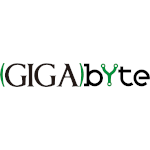PhysiCOOL: A generalized framework for model Calibration and Optimization Of modeLing projects
This article has been Reviewed by the following groups
Discuss this preprint
Start a discussion What are Sciety discussions?Listed in
- Evaluated articles (GigaByte)
Abstract
In silico models of biological systems are usually very complex and rely on a large number of parameters describing physical and biological properties that require validation. As such, parameter space exploration is an essential component of computational model development to fully characterize and validate simulation results. Experimental data may also be used to constrain parameter space (or enable model calibration) to enhance the biological relevance of model parameters. One widely used computational platform in the mathematical biology community is PhysiCell, which provides a standardized approach to agent-based models of biological phenomena at different time and spatial scales. Nonetheless, one limitation of PhysiCell is the lack of a generalized approach for parameter space exploration and calibration that can be run without high-performance computing access. Here, we present PhysiCOOL, an open-source Python library tailored to create standardized calibration and optimization routines for PhysiCell models.
Article activity feed
-

Abstract
This work has been published in GigaByte Journal under a CC-BY 4.0 license (https://doi.org/10.46471/gigabyte.77 and has published the reviews under the same license.
**Reviewer 1. Cicely Macnamara **
The manuscript entitled " PhysiCOOL: A generalized framework for model Calibration and Optimization Of modeLing projects" is succinctly written; its purpose is clear and the software created simple yet effective. I think improvements could be made to the documentation allowing a non-expert user to make use of this valuable tool. I also have a few minor comments below. Otherwise I am happy to recommend the publication of this paper.
Minor comments: (1) Could the authors clarify in the paper (where it says PhysiCool has partial support for PhysiCell v1.10.3 and higher) whether it is the author's intention to keep this tool up to …
Abstract
This work has been published in GigaByte Journal under a CC-BY 4.0 license (https://doi.org/10.46471/gigabyte.77 and has published the reviews under the same license.
**Reviewer 1. Cicely Macnamara **
The manuscript entitled " PhysiCOOL: A generalized framework for model Calibration and Optimization Of modeLing projects" is succinctly written; its purpose is clear and the software created simple yet effective. I think improvements could be made to the documentation allowing a non-expert user to make use of this valuable tool. I also have a few minor comments below. Otherwise I am happy to recommend the publication of this paper.
Minor comments: (1) Could the authors clarify in the paper (where it says PhysiCool has partial support for PhysiCell v1.10.3 and higher) whether it is the author's intention to keep this tool up to date with newer releases of PhysiCell? (2) For the multilevel parameter sweep the authors suggest that the number of levels and grid parameters can be defined by the user. Do the authors have any suggestions on picking the appropriate number of levels, for example, or could future development include some form of dynamic choice for number of levels e.g. stop when a certain degree of accuracy is found?
**Reviewer 2. Daniel Roy Bergman **
This is a very nice addition to the PhysiCell ecosystem. Methods for parameterizing agent-based models is critical, and the ability to do so without expensive computing resources, i.e. HPC, will aid many researchers.
Comments:
- "Furthermore, experimental data could..., they can be used..." this feels like a run-on sentence. It is unclear who/what "they" is.
- "bespoke HPC workflows..." Is this referencing DAPT and the PhysiCell-EMEWS workflow? If so, how does PhysiCOOL differ from these?
- Is PhysiCOOL defining this multilevel sweep approach to parameter estimation? Or is this already established? If the former, please emphasize. If the latter, are there citations? 4) Please emphasize that the "Simple model of logistic growth" is not done with PhysiCell. 5) I needed Python version < 3.11.0 to install physicool
Major revisions:
- Please check on the issue I had with the motility example and it not generating output files.
Minor revisions:
- "As for many several computational modelling frameworks..." consider rewording. I would suggest "As with many computational modeling frameworks"
- "...namely an Extensible..."
- "...can be employed to randomly sample points within..."
- Please change notation in Table 2 so that the "* point" columns report the values as coordinates ( , ) rather than like intervals [ , ].
Re-review: The authors addressed all my concerns and I have no further reservations in recommending this manuscript for publication.
-
-

